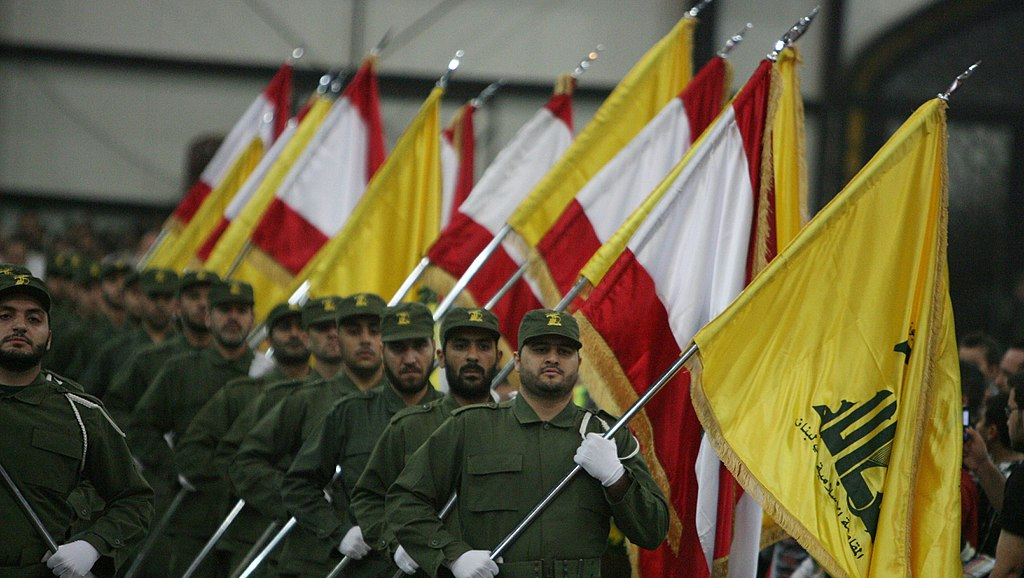[vc_row][vc_column][vc_single_image image=”116296″ img_size=”full” add_caption=”yes”][vc_column_text]On 4 February, the Lebanese activist, political commentator and publisher Lokman Slim was shot dead in his car.
Before his murder, Slim already suspected that his days were numbered and told family members that should anything happen to him, the Shia militant group Hezbollah – of which he had been an outspoken critic – would likely be behind it.
“For the first time in years, after verbal and many physical attacks on people who oppose the politics of Hezbollah, a well-known personality [Slim] was assassinated in their areas with many leads that allow many to boldly question their involvement in his murder,” said Lebanese journalist Luna Safwan.
Safwan said that his assassination followed years of threats and attempts to drive him away from his house which is located inside the Hezbollah stronghold in Dahiye.
“[There were] continuous campaigns against him, trying to somehow shape his view as a sympathiser with violence against Hezbollah supporters or the Shia community in Lebanon,” she said. “The way I see it, the aim was not only to assassinate him physically, but to also tarnish his reputation even after his death.”
Safwan herself has also been targeted. She tweeted criticism of Hezbollah in October and received a high volume of online abuse, including several death threats, after the tweet was featured on an Israeli news channel.
Safwan believes attacks on journalists and other critics of Hezbollah have increased in recent years.
“Journalists, activists and even protestors and people from inside the Shia community have started questioning Hezbollah’s politics in the region, and how much Hezbollah is prioritising Lebanon.”
Last December, the family of Maryam Seif Eddine, a strong critic of Hezbollah, was attacked and issued with death threats.
The same month, Sawt Beirut International reporter Rabih Chantaf and cameraman Mahmoud Al-Sayyed were attacked while covering a fire in the Lebanese capital.
Arab News reported that as the pair were filming firemen attending the blaze, they were approached by people in plain clothes and forcibly stopped from filming. They were beaten as they fled down the building’s stairs. Sawt Beirut blamed the incident on Hezbollah.
In January, Layal Alekthiar, a journalist for US-backed Alhurra News channel, was threatened after a Twitter post that questioned the unveiling of a statue to the late Iranian general Qasem Soleimani, killed by US forces last year. Iran is a backer of Hezbollah.
Another journalist working in Lebanon – who wished to remain anonymous due to the current attitude towards reporters – told Index that journalists in the country “all feel at risk”.
“The assassination of Slim was a reminder of that,” they said.
Journalists are increasingly self-censoring as a result.
The journalist said, “I have been covering [Lebanon’s] economic crisis, so I don’t feel personally at risk, even though I noticed that my sources are getting increasingly scared,” they said. “If I were to be given a topic related to Hezbollah I would be extra careful. You just have to see the number of threats my colleagues receive when they express an anti-Hezbollah opinion on social media.”
Independent Lebanese journalist Zahra Hankir, who wrote in the winter issue of Index on Censorship magazine and is based between London and Lebanon, said reporters are reeling from recent events and are “galvanised” by the state in which Lebanon finds itself in, particularly following the deadly explosion in August that killed more than 200 people and injured thousands.
“Despite Lebanon being hailed for decades as more free for journalists than its regional counterparts, reporters, political analysts and commentators in the country are increasingly facing threats and harassment in their work, particularly women,” she said.
“Lebanon’s media landscape has always had ‘red lines’ that journalists inherently understood could not be crossed without reprisals – among them, criticism of Hezbollah.”
“Reporters and commentators have been galvanized by recent events, given the dire state of the country, and as such have often been more brazen in their reporting. In some cases, they have paid dearly for their bravery.”
The explosion exposed, among other things, wide-scale corruption in the country. But the lack of accountability in Lebanon means people are still at risk and not just from Hezbollah.
With Hezbollah increasingly criticised for its position in Lebanon and the government unwilling to truly crack down on corruptive practices, journalists are constantly looking over their shoulders.
Safwan said: “Laws in Lebanon have flaws and don’t offer any real protection to journalists, especially when we are subjected to online hate campaigns. There should be a clear process that allows us to immediately pursue legal action even if against ‘unknown entities’.
She said, “In my opinion the ministry of information and syndicate of journalism are not paying attention to what journalists really need.”
Additional reporting by Mark Frary[/vc_column_text][/vc_column][/vc_row][vc_row][vc_column][three_column_post title=”You may also like to read” category_id=”581″][/vc_column][/vc_row]





